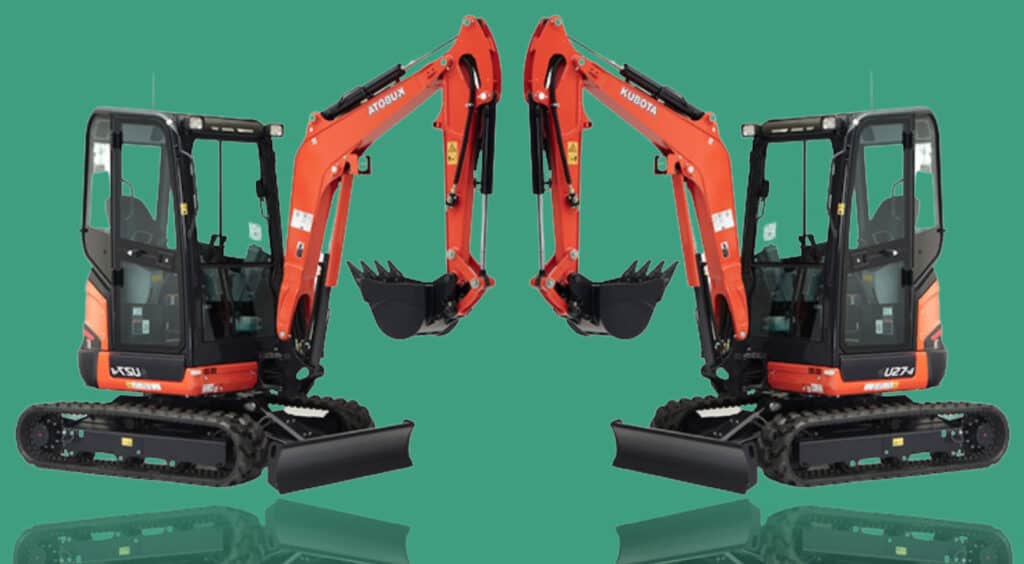Mini excavators are compact machines used in construction, landscaping, and excavation projects. They provide powerful digging capabilities in tight spaces and are commonly used for digging trenches, grading land, and demolishing structures. One of the most important factors when using a mini excavator is its weight. But how much does a mini excavator weighs, and why is it important to know?
Weight of a Mini Excavator
Mini excavators come in different sizes, ranging from small machines that weigh less than 1 ton to larger models that weigh several tons. Usually, compact excavators are small and mobile, weighing 5,000 and 14,000 lbs. The weight of a mini excavator is determined by several factors, including its size, engine, and the type of materials used in the manufacturing process of a mini excavator.
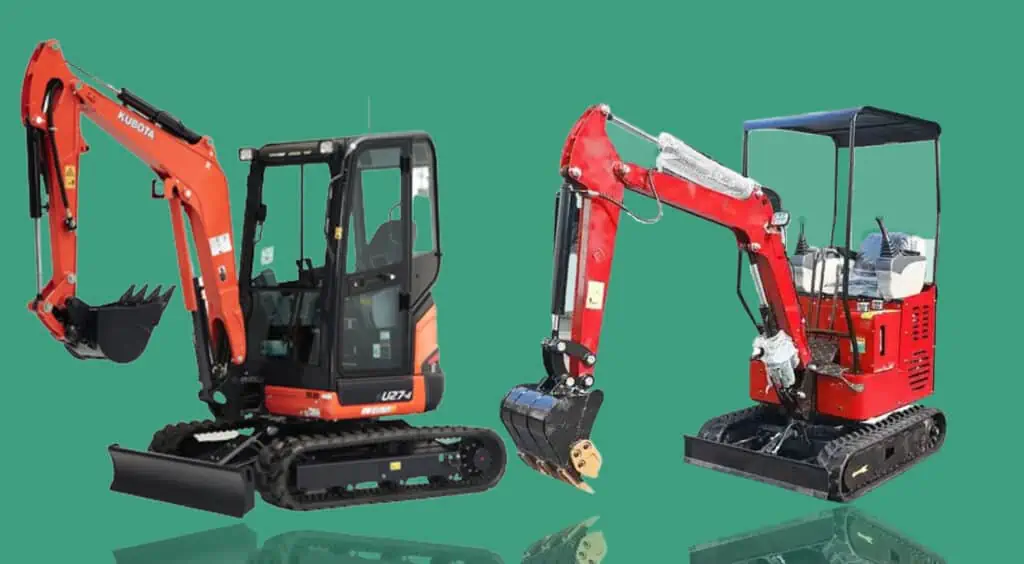
The average weight of a mini excavator is around 3,000 pounds or 1.5 tons. The weight can vary depending on the specific model and manufacturer. The machine’s weight will determine the size of the trailer or truck needed to transport it to the job site. If you do not have the proper equipment to transport the mini excavator, it can be difficult or impossible to get it to the job site. Furthermore, the weight of the machine will also affect the type of terrain it can operate on.
Because a lightweight mini excavator can operate on soft ground, but a heavier machine sinks into the ground and become stuck. A heavier machine requires additional support and reinforcement when working on unstable or sloping ground. The weight of the mini excavator will also affect its performance. A heavy-weight machine will have more digging power and handle larger loads than a lighter machine. However, a lighter machine can be more maneuverable and access tighter spaces.
How does size affect a mini excavator’s weight?
The size of a mini excavator can vary widely, depending on the specific model and manufacturer. Mini excavators are classified based on weight, with machines weighing less than 3,000 pounds considered compact excavators. However, the physical size of the machine can also vary widely. Some mini excavators are less than 6 feet tall and 3 feet wide, while others are up to 10 feet tall and 7 feet wide.
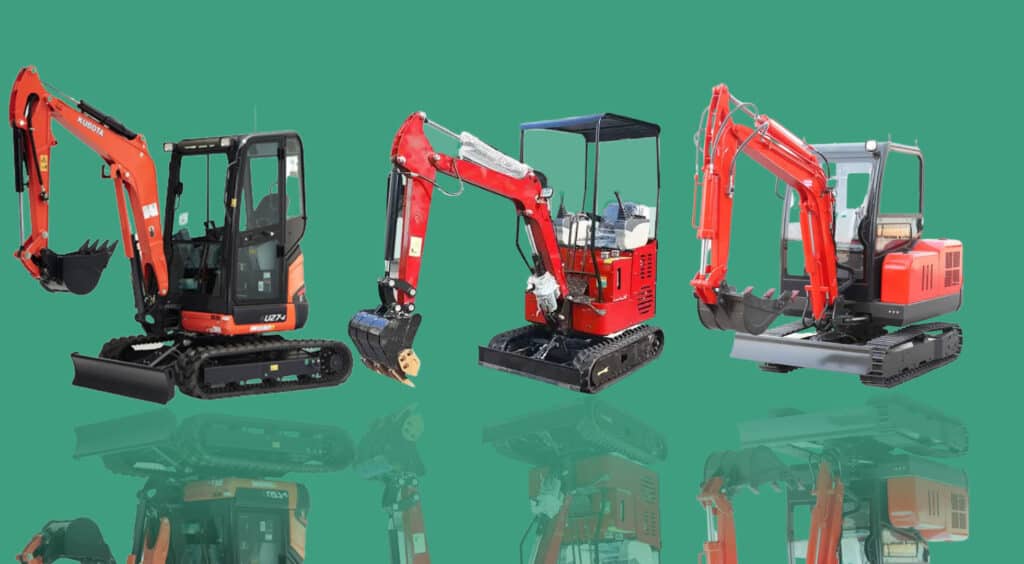
The size of a mini excavator is an important consideration when selecting a machine for your project. A smaller machine may be able to access tight spaces and operate in confined areas but have less digging power and be limited in the size of loads it can handle.
A larger machine may have more digging power and be able to handle larger loads, but it may be more difficult to maneuver in tight spaces. When selecting a mini excavator, it is important to consider the specific needs of your project. A smaller machine may be best if you work in a tight or confined space. A larger machine may be necessary to handle large loads or work on tough terrain.
It is also important to consider the size of any attachments you use with the mini excavator. Attachments such as buckets, drills, and breakers can add significant weight and size to the machine and may require a larger machine to handle them.
How do attachments affect a mini excavator’s weight?
Attachments can have a significant impact on the weight of a mini excavator. As attachments are added to the machine, the weight increases, which can affect the machine’s performance and stability. The weight of an attachment can vary widely depending on the specific type and manufacturer. A bucket attachment may weigh several hundred pounds, while a hydraulic hammer or compactor attachment may weigh several thousand pounds.
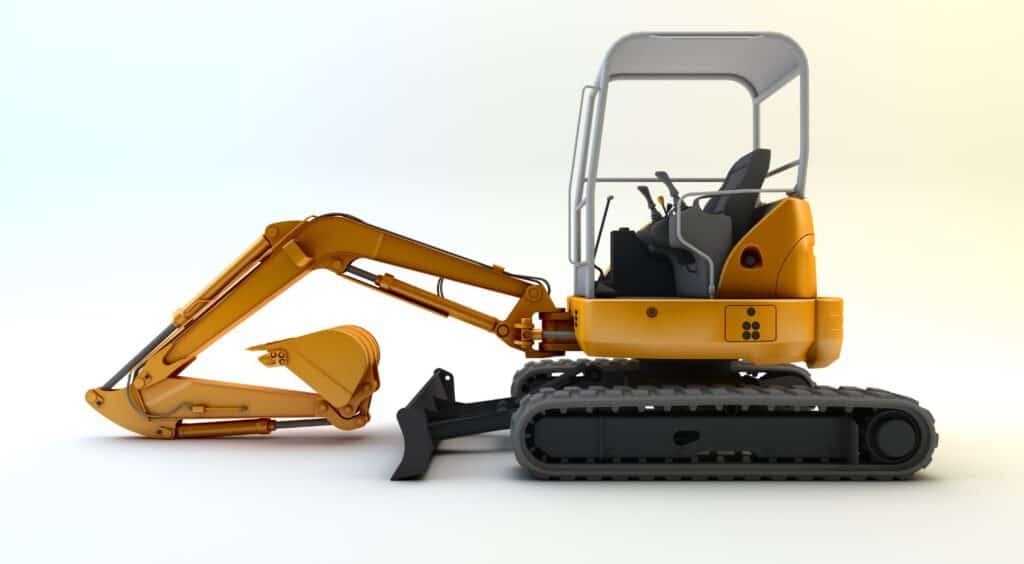
When selecting attachments for a mini excavator, it is important to consider the weight and compatibility of the attachment with the machine. The machine’s manufacturer will typically provide specifications for the maximum weight and size of attachments that can be safely used with the machine. Attachments can also affect the balance ,stability and efficiency of the machine.
Heavy attachments, such as hammers or breakers, can shift the center of gravity of the machine, potentially affecting the machine’s stability and control. So for safety, it is important to use properly sized and balanced attachments for the machine. It requires adjusting the machine’s counterweight or other components to compensate for the added weight of the attachment.
The engine of the mini excavator
The engine of a mini excavator can affect its weight. Generally speaking, larger engines tend to be heavier than smaller engines. Therefore, a mini excavator with a larger engine may weigh more than one with a smaller engine. The type of engine used can also impact the weight of the mini excavator.
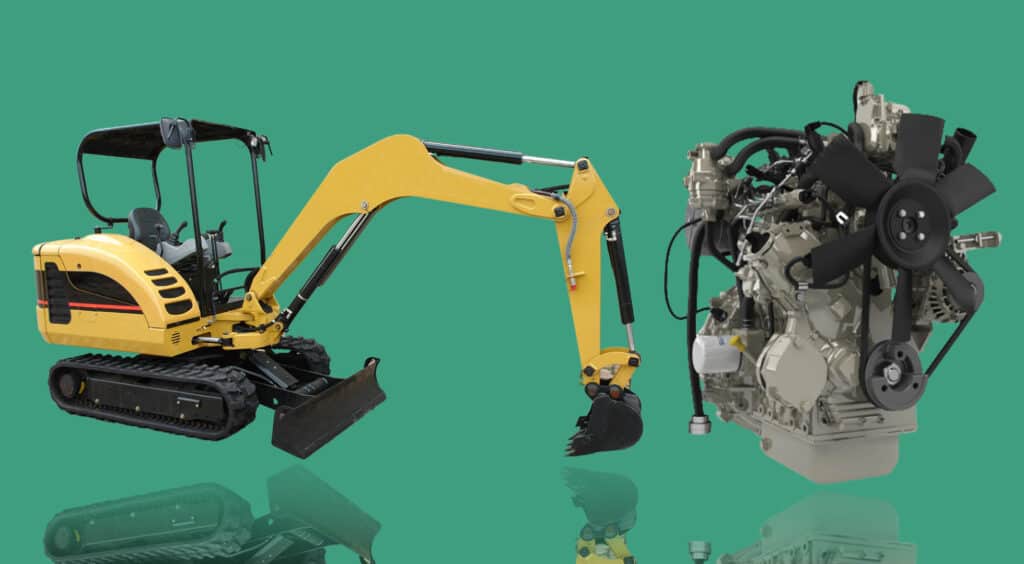
For example, a diesel engine may be heavier than a gasoline engine of the same size due to its heavier components and different systems. Besides, the size of the hydraulic system, the weight of the cab and other attachments, and the type of tracks or wheels also affect the weight of a small excavator.
Famous Brands’ Mini Excavators and Weight
- Yanmar VIO35-6A (8,214 lbs)
- John Deere 30G (7,220 lbs)
- Doosan’s DX35-5 (8,193 lbs)
- Case CX37C (7,990 lbs)
- Takeuchi TB240 (8,570 lbs)
- Kubota KX040-4 (9,195)
- Hixen HX10 (1 ton)
Regular Uses of Mini Excavators
Mini excavators are great for construction on limited space or require a machine fitting into small or narrow areas. Digging in narrow places and areas where many gas lines or pipes are buried near the job site can be more accurate with them.
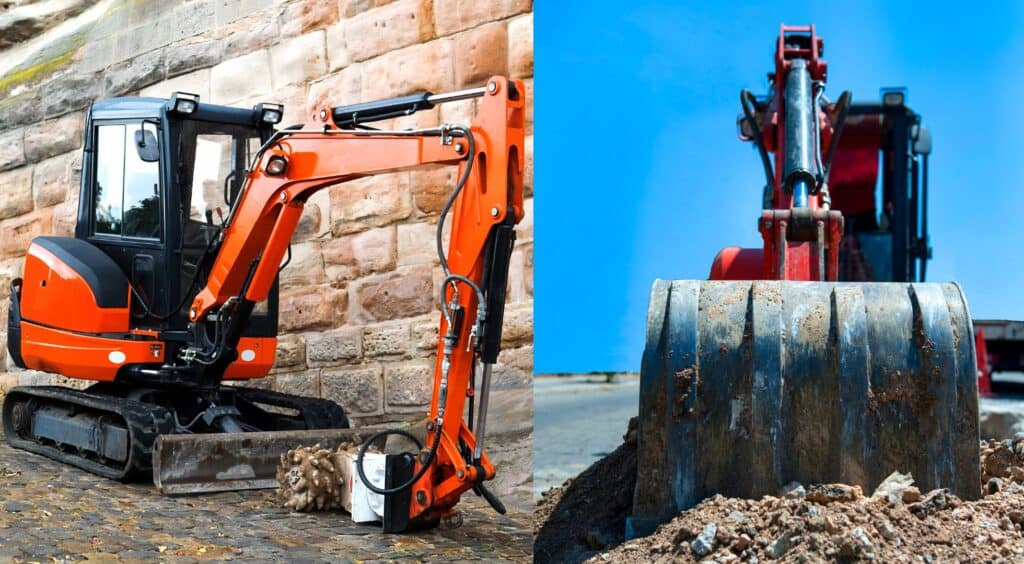
Mini excavators are easy to transport and don’t require as much fuel. It saves time and money without sacrificing their capabilities. They are great for softer terrain to avoid damaging the surrounding grass, soil, or pavement. Although they don’t have quite as much power as their full-sized counterparts, they are ideal for a variety of tasks, such as:
- Pool installation
- Landscaping
- Digging graves
- Renovations
- Tree harvesting
- Pipe Repair
- Small demolition jobs
As long as they are operated safely, mini excavators can be a valuable asset to any fleet. Knowing the weight of the machine and its attachments will help give your equipment a longer lifespan and ensure that it meets all safety standards.
The bottom line of a mini excavator weighs
The weight of a mini excavator can vary depending on the specific model and manufacturer. The weight includes the tracks or wheels, hydraulic components, and other structural elements that comprise the excavator’s base. It is important to note the weight when transporting or operating a mini excavator, as it can affect stability, maneuverability, and overall performance. You should also consult the job site for more information; you can contact us.

